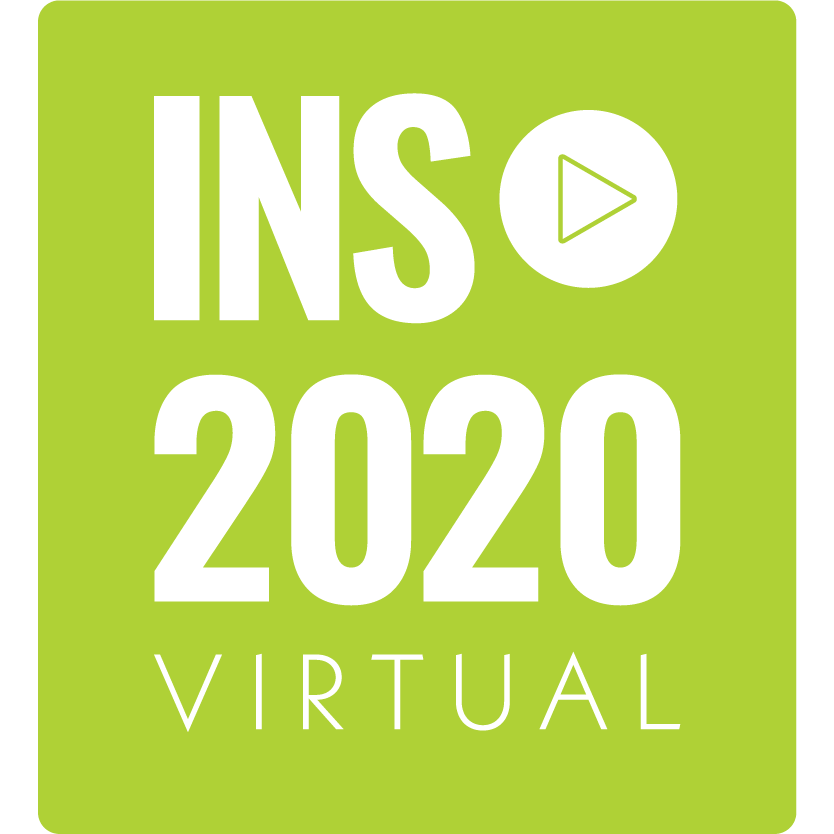
Learning Center
September 10 - Conference Session Agenda
Networking: Morning Coffee Chat 9:30am - 10:30am ET
Morning Coffee Chat
View SessionOverview
Join INS for a morning coffee chat and interact directly with other infusion professionals and INS leadership! You don’t need to drink coffee to join; share your morning beverage of choice with the group! This will be an open forum for attendees to talk about nursing experiences, current events, or just share fun stories.
Breakout Sessions 11:00am - 12:00pm ET
Drug-Induced Vascular Tissue Injury
Overview
Understanding physiologic and pharmacologic factors that predispose patients to drug-induced vascular tissue damage are a necessary component of safe infusion therapy. Best practice includes effective application of principles and guidelines to minimize drug-induced vascular damage. This session will discuss factors impacting vascular injury, best practice guidelines, and care collaboration to reduce drug-induced vascular tissue damage.
Speaker
Marc Stranz, PharmD
View Session
Rheumatoid Arthritis Overview and Treatment Options
Overview
Rheumatoid arthritis (RA) is a systemic, inflammatory autoimmune disease. If not identified early and treated appropriately, it can result in pain, deformity, and progressive disability, such as persistent joint inflammation. While there has been considerable progress in the treatment of RA, there is no cure. Current conventional treatment aims to expedite diagnosis and rapidly achieve a low disease activity state, however many patients may require additional options. This session will provide an overview of the pathophysiology of RA, including diagnosis and treatment, and will conclude with a discussion on the role of the infusion nurse in patient care.
Speaker
Linda Grinnell Merrick, NP-C
View Session
One Million Global (OMG) Peripheral Intravenous Catheters- Have You Heard About These?
Overview
This presentation will provide the latest research on peripheral intravenous catheters (PIVC) from the Alliance for Vascular Access Teaching and Research (AVATAR) Group in Australia. A brief overview of the One Million Global (OMG) Peripheral Intravenous Catheter Study, including a pediatric subgroup analysis, will be provided. The development and implementation of a PIVC bundle of care for both adult and pediatric patients, including both insertion and maintenance components will be described. Observational studies and various randomized control trials that were undertaken to reduce PIVC failure will also be discussed. This session will conclude with a summary of the current PIVC failure rate and potential future research.
Speaker
Tricia Kleidon, RN, BSc, MNSc
View Session
Virtual Exhibit Hall 12:00pm - 1:00pm ET
General Session 1:00pm - 2:00pm ET
Future of Nursing: Considering Diversity and Inclusion
View SessionOverview
This presentation will explore the landmark report, The Future of Nursing: Leading Change, Advancing Health, and discuss why workforce diversity is important to accomplishing the vision of The Future of Nursing 2020-2030. Attendees will also learn how health care changes will impact the future of nursing.
Speaker
Deb Toney, PhD, RN
Conference Break 2:00pm - 2:15pm ET
Breakout Sessions 2:15pm - 3:15pm ET
Infusate Challenges: Infiltration, Extravasation, and Phlebitis
Overview
Nurses are essential in preventing and/or mitigating medication administration complications. Understanding the chemical properties of infusates and the potential for patient harm when administering irritants and vesicants is imperative. Nurses must routinely assess vascular access devices (VADs), monitor each infusion for untoward effects, and be prepared to intervene immediately if complications arise. This session will address nurse assessment of VADs, safe administration practices for irritants and vesicants, and interventions for infiltration, extravasation, and phlebitis.
Speaker
Britt Meyer, PhD, RN, CRNI®, VA-BC, NE-BC
View Session
Exploration of Peripheral Intravenous Access with Continuous or Bolus Infusion of 3% NaCl
Overview
Hypertonic saline (3% NaCl) is commonly used in the treatment of neurologic emergencies or acute severe hyponatremia in hospitalized patients; yet limited data exists to guide proper administration. Clinical opinions vary on the concentration of NaCl that can be safely infused through peripheral venous access (PIV). This session will outline the results of a 2-year case study that examined clinical effects of maintaining PIV access following peripheral administration of 3% NaCl.
Speaker
Denise Harper, MSN, RN, ACNS-BC, CRNI®
View Session
Fact vs Fiction: Lymphedema and Vascular Access Post Breast Cancer-Related Surgery
Overview
Lymphedema is a potential complication of breast cancer related surgery. The impact and morbidity of lymphedema on a person’s quality of life is well known; however, the sequelae that cause its development remains a mystery. The gap in understanding this pathology complicates a clinicians’ ability to provide useful prevention strategies. Treatment options for BCRL have dramatically improved over the last 20 years, yet vascular access recommendations continue to be based on anecdotal rather than scientific evidence. This session will discuss the pathophysiology of lymphedema, vascular access options, and current evidence-based recommendations for patients with BCRL.
Speaker
Karen Laforet, MClSc-WH, RN, CNHC(c), VA-BC, CVAA(C), IIWCC
View Session
MorphoSys Exhibitor Theater: MONJUVI (tafasitamab-cxix) for injection, for intravenous use
Overview
Coming Soon
Speaker
Too be announced.
View Session
| Access Date | Quiz Result | Score | Actions |
|---|
